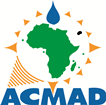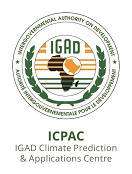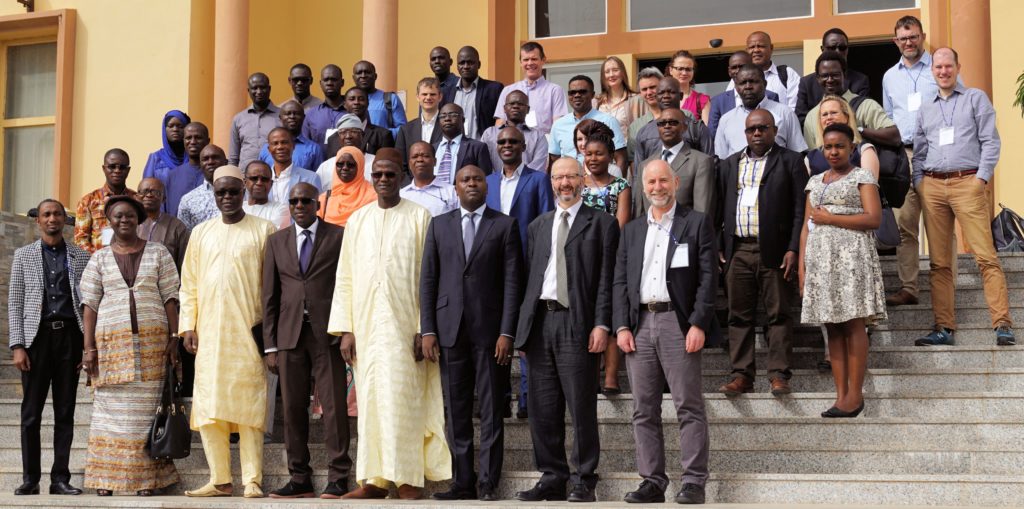UK Institutions
NCAS
The National Centre for Atmospheric Science (NCAS) is a world leader in atmospheric science, a multi-million pound research centre, funded by the Natural Environment Research Council (NERC). NCAS carries out research in climate science, atmospheric composition and air quality, physics of the atmosphere (including hazardous and extreme weather) and provides the UK community with state-of-the-art technologies for observing and modelling the atmosphere, including a world-leading research aircraft.
By its very nature, atmospheric science research is multi-disciplinary, and NCAS works to bring together scientists from a range of core disciplines such as physics, chemistry and mathematics, using state-of-the-art technologies for observing and modelling the atmosphere.
NCAS provides scientific facilities for researcher’s across the UK to enable excellent atmospheric science on a national scale. These include a world-leading research aircraft, a ground-based instrumentation pool, access to computer models and facilities for storing and accessing data. In a nutshell, NCAS provides the UK academic community and the Natural Environment Research Council with national capability in atmospheric science.
University of Leeds
The University of Leeds is one of the largest higher education institutions in the UK, with more than 33,000 students from 147 different countries, and a member of the Russell Group research-intensive universities.
The University of Leeds is a top 10 university for research and impact power in the UK, according to the 2014 Research Excellence Framework and The Times and The Sunday Times University of the Year 2017.
Centre for Ecology and Hydrology
The Centre for Ecology & Hydrology (CEH) is the UK’s Centre of Excellence for integrated research in land and freshwater ecosystems and their interaction with the atmosphere. CEH is part of the Natural Environment Research Council; employs more than 450 people at four major sites in England, Scotland and Wales; hosts over 150 PhD students; and has an overall budget of about £35m. CEH tackles complex environmental challenges to deliver practical solutions so that future generations can benefit from a rich and healthy environment. You can follow the latest developments in CEH research via @CEHScienceNews on Twitter.
University of Reading
The University of Reading is one of the world’s leading centres for the study of weather, climate, earth observation and environmental sciences. The Department of Meteorology focuses on study of the atmosphere, oceans, ice and the land surface, and their interactions with life on Earth, including natural ecosystems, agriculture and human society.
UK Met Office
The Met Office is a global centre of excellence in weather and climate science, and the United Kingdom’s national weather service. It is home to a wide range of skills and world class expertise, enabling it to support countries around the globe in developing and enhancing their weather and climate services.
The Met Office develops and uses the Unified Model – a global and regional modelling system which can be used seamlessly from weather to climate timescales. The model is consistently in the top two in the world in terms of accuracy and is used operationally on a daily basis by hundreds of forecasters worldwide and across the African continent.
The Met Office have a strong history of support for African National Meteorological Services through its Science programme, the WMO Voluntary Cooperation Programme and the International Development team – delivering progress in partnership with National Meteorological Services across the developing world.
TAMSAT
Tropical Applications of Meteorology using SATellite data and ground-based observations (TAMSAT), enhances the capacity of African meteorological agencies and other organizations by providing and supporting the use of satellite-based rainfall estimates and related data products. TAMSAT was established by the University of Reading in 1977 and has developed close collaborations with the Climate Division of the National Centre for Atmospheric Science (NCAS) and the National Centre for Earth Observation (NCEO) to extend the range of climate services it provides.
African Institutions
ACMAD

The African Centre of Meteorological Applications for Development is an institution created by the Conference of the Ministers of the United Nations Economic Commission for Africa (UNECA) and the World Meteorological Organization (WMO) in 1987 for the purpose of improving the understanding of atmospheric and climatic processes; providing meteorological watch and early warning systems; promoting the training of African scientists; identifying and solving urgent regional climatic problems; and contributing to the strengthening capabilities of the National Meteorological and Hydrological Services (NMHS). It started operations in 1992 in Niamey, Niger. ACMAD, earmarked for a Centre of Excellence in Tropical Meteorology, addresses issues not handled by the regional meteorological institutions and the National Meteorological and Hydrological Services.
ICPAC
The Intergovernmental Authority on Development (IGAD) Climate Prediction and Applications Centre (ICPAC) is a specialized institution with a mandate to support the formulation of development policy for sustainable development, and to provide timely and sector-specific early-warning information to mitigate weather and climate-related risks and disasters in the Greater Horn of Africa (GHA). This includes eight IGAD member countries (Djibouti, Eritrea, Ethiopia, Kenya, Somalia, South Sudan, Sudan, Uganda) and three non-IGAD states (Burundi, Rwanda, and Tanzania). In addition to the provision of early warnings at time scales ranging from sub-seasonal to seasonal and beyond, ICPAC is also mandated to support and improve the technical capacity of weather and climate information producers and users in the region, to enhance use of early warning, monitoring, and forecasting for efficient decision-making.
ANACIM
Agence Nationale de l’Aviation Civile et de la Meteorologie (ANACIM) is the National Civil Aviation and Meteorology Agency for Senegal which is in charge of:
- The promotion and implementation of the Senegal policy on meteorology;
- Monitoring and management of the Senegal’s meteorological commitments;
- The development and implementation of the meteorological strategy in accordance with the national priority orientations;
- Coordination, supervision and control of all meteorological activities in Senegal and monitoring the activities of international and regional organizations involved in the field of meteorology;
- The operation, inspection and maintenance of all meteorological stations, including rainfall stations in the national territory;
- Improving forecasting at all time scales and developing products and services for users in line with WMO programmes such as the Global Framework for Climate Services and Disaster Risk Reduction.
UCAD
Cheikh Anta Diop University (UCAD) of Dakar is a public Higher Education institution based in Senegal with an excellent reputation in Africa for tertiary training, research, and service to society. 80,000 students come from all over the African continent to study at UCAD, and the faculties of UCAD are amongst the highest performers in research by African Universities. At UCAD, the Laboratoire de Physique de l’Atmosphere et de l’Ocean S. F., (LPAO-SF) called Ecole Superieure Polytechnique, is active in atmospheric, ocean and climate physical sciences, and is increasingly involved in climate impacts on health, agriculture and hydrology.
KMD
Kenya Meteorological Department (KMD) is the meteorological operational service provider for Kenya and provides meteorological and climate services to the public and various specialised sectors. The department is also charged with World Meteorological Organisation (WMO) regional responsibility as a meteorological data collection or producing centre (DCPC) communication hub. KMD hosts the WMO’s Regional Training Centre (RTC) – IMTR-Nairobi, and the Regional Specialized Meteorological Centre for severe weather forecasting for the Eastern Africa region.
University of Nairobi
The Department of Meteorology at the University of Nairobi is a research and training hub for weather and climate scientists across Africa at both undergraduate and postgraduate levels and is known for specialised applications of weather and climate to sensitive societal needs and challenges, such as food and water. The Department of Meteorology at the University of Nairobi was established in 1963 at the request of the East African Community (EAC), the WMO, and the United Nations Development Programme (UNDP) to train professional meteorologists for the English-speaking countries of Africa. Ever since its inception, the Department of Meteorology has continued to play a major role in training expert personnel who have diligently served, and continue to serve, national and international community needs using advancement of weather and climate services to address societal challenges including food, water, energy, and more for sustainable natural resource use and development.
GMET
Ghana Meteorological Agency (GMet) is the operational meteorological service for Ghana providing meteorological services and ensuring operation and maintenance of international standards and practices in meteorology across the country.
KNUST
Kwame Nkrumah University of Science and Technology (KNUST) is a public tertiary higher educational institution that has the mandate to provide higher education, undertake research, disseminate knowledge and foster relationships with outside persons and bodies. The vision of the university is to build on KNUST’s leadership as the premier science and technology university in Ghana and be among the top Ten Universities in Africa. The mission is to advance knowledge in science and technology by creating an environment for relevant research, quality teaching, entrepreneurship training and community engagement to improve the quality of life. KNUST has expertise in meteorology, climate science and environmental sustainability and development among others.
NiMet
Nigerian Meteorological Agency (NiMet) is a federal government agency providing the meteorological operational services for Nigeria. NiMet is responsible for advising the Nigerian Government on all aspects of meteorology.
FUTA
The Department of Meteorology and Climate Science at the Federal University of Technology, Akure (FUTA), Nigeria, is the World Meteorological Organisation (WMO) University component of the Regional Training Centre (RTC) for West Africa, comprising of leading researchers in the field of meteorology and climate science in Africa. Established in 1984, it has become a weather and climate training institution known for producing highly-skilled professionals at undergraduate and postgraduate levels, in order to address regional weather and climate challenges. FUTA is linked with the German-funded West African Science Service Centre for Climate Change and Adapted Land Use (WASCAL) and the Graduate Studies Programme in West African Climate Systems (GSP-WACS).
FUTA has maintained its ranking as the best University of Technology since 2004 and was rated as the 9th best university in Nigeria in 2016.
International
UN WMO
The World Meteorological Organization is a specialised agency of the United Nations, dedicated to international cooperation and coordination for the production of meteorological observations, as well as hydrological and other geophysical observations related to meteorology, and the development and maintenance of centres responsible for the provision of meteorological and related services. The WMO World Weather Research Programme (WWRP) has supported a series of international and regional projects with the aim to increase global resilience to high impact weather through research focused on improving the accuracy and uptake of weather prediction.
UN WMO Global Campus
The WMO Global Campus is an ambitious initiative that began in the years leading up to the WMO Executive Council (EC) Session 66 in 2014, which made the decision to launch a feasibility study on the concept as a way of increasing collaboration, cooperation and sharing between education and training institutions. The goal of the WMO Global Campus concept is to increase capacity to educate and train professionals within WMO Member states and territories.

